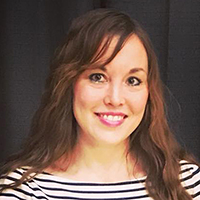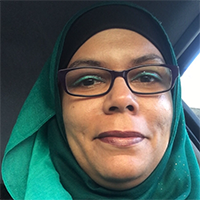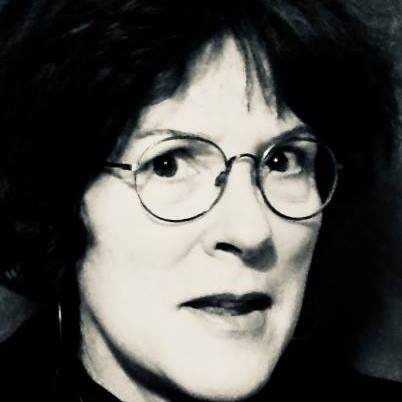Incoming First Year Undergraduate Students
Welcome to the RWU community! We are so pleased to see that you would like to jump start your RWU experience with summer session. We appreciate your desire to look ahead to the next chapter of your academic journey, and we are eager to help you explore the options offered via summer session to help you get started.
Sign Up and Register
Online 3-credit undergraduate class tuition: $1299
If you would like to move forward with taking a course, please submit the interest form.
You will then be contacted by a professional advisor in the Center for Student Academic Success who will guide you through your decision and register you. If you have any questions about summer of fall academic planning, feel free to reach out to Elizabeth Niemeyer, Director of the Advising & Peer Mentorship Office at eniemeyer@rwu.edu.
Once you register for a class, you will be assigned a Peer Mentor, a returning student who will serve as a resource for you this summer. They will be in touch to introduce themselves and to review support services available over the summer, including the Tutoring Center.
Options
The course listing below identifies courses appropriate for new students. We encourage you to look through the list and read the descriptions of the courses to find what is most interesting to you.
Option 1 includes courses offered for first-year students only. This option lists 3 sections of Core Curriculum classes that are required for ALL RWU students. You will take all three of these courses at some point in your first two years at RWU. It also includes COMM 210, which is a requirement for some majors, but can also be used as an elective for others. COMM 210 is an excellent class to strengthen your skills in public speaking.
Option 2 includes courses appropriate for all new entering students. These courses are open to everyone so you will be in class with returning and visiting students.
Note: you can take up to two courses in Summer Session 2.
Summer Session 2 at RWU for New First-Year Students:
Option 1: Classes for First-Year Student Only
These courses are only open to new first-time college students who will be part of the RWU entering class of Fall 2020.
Classes begin on July 5 and run through August 9. You can register for up to two classes in Summer Session 2. It is important to consider that these summer courses are in a shorter time period than a traditional semester and move at a relatively fast pace. Student are encouraged to speak to an advisor to discuss whether they should register for one or two classes.
 Trace the growing complexity of the idea of democracy by analyzing primary source documents;
Trace the growing complexity of the idea of democracy by analyzing primary source documents;- Examine the idea of democracy, its inherent tensions, and its relationship to other concepts including but not limited to: reason, equality, liberty, order, and identity;
- Describe how key concepts within democratic thought are practiced in the modern world including how those concepts relate to the three Core Questions
This course will be taught by Professor Charlotte Carrington-Farmer.
 CHARLOTTE CARRINGTON-FARMER is an Associate Professor of History, who specializes in social and cultural history in the early modern Atlantic World. She received her Ph.D. from the University of Cambridge (Trinity Hall) in 2010. She published a biography of Thomas Morton in: Atlantic Lives: Biographies that Cross the Ocean (Leiden and Boson: Brill, 2014.) She has published an article entitled ‘The Rise and Fall of the Narragansett Pacer,’ in Rhode Island History, Winter/Spring 2018, Volume 76, Number 1, pp. 1-38. She has written a chapter entitled ‘Trading Horses in the Eighteenth Century: Rhode Island and the Atlantic World,’ in: Kristen Guest and Monica Mattfeld, eds., Equine Cultures: Horses, Human Society, and the Discourse of Modernity, 1700-Present (Chicago: University of Chicago Press, 2019.) Dr. Carrington-Farmer has reviewed books for History: Reviews of New Books, Equine History Collective, and Connecticut History Review. Dr. Carrington-Farmer has written pieces for The Junto and The Spectacle of Toleration blogs and recorded podcasts for the Knowing Animals series.
CHARLOTTE CARRINGTON-FARMER is an Associate Professor of History, who specializes in social and cultural history in the early modern Atlantic World. She received her Ph.D. from the University of Cambridge (Trinity Hall) in 2010. She published a biography of Thomas Morton in: Atlantic Lives: Biographies that Cross the Ocean (Leiden and Boson: Brill, 2014.) She has published an article entitled ‘The Rise and Fall of the Narragansett Pacer,’ in Rhode Island History, Winter/Spring 2018, Volume 76, Number 1, pp. 1-38. She has written a chapter entitled ‘Trading Horses in the Eighteenth Century: Rhode Island and the Atlantic World,’ in: Kristen Guest and Monica Mattfeld, eds., Equine Cultures: Horses, Human Society, and the Discourse of Modernity, 1700-Present (Chicago: University of Chicago Press, 2019.) Dr. Carrington-Farmer has reviewed books for History: Reviews of New Books, Equine History Collective, and Connecticut History Review. Dr. Carrington-Farmer has written pieces for The Junto and The Spectacle of Toleration blogs and recorded podcasts for the Knowing Animals series.
 Explain and describe human behavior from various social scientific points of view.
Explain and describe human behavior from various social scientific points of view.- Demonstrate an increased understanding of and sensitivity towards human diversity and inequalities.
- Critically assess social science research.
Professor Leslie Grinner teaches CORE 103 – Human Behavior in Perspective as a Feminist Media Literacy course with a Social Justice paradigm as its core. In this course students will learn to “read” codes, ideologies, discourses, and cultural stories in media and popular culture. We will be exploring issues of privilege and power, asking questions such as “Who benefits and who suffers as a result of these representations?” and “What ideologies are we being taught by media?” Students will leave the course being more engaged and informed consumers of media and popular culture, and will be able to critically analyze news media, popular culture, and advertisements.
 LESLIE GRINNER is an Adjunct Professor in the Core Curriculum at Roger Williams University. She received her BA in Gender Studies and Social Science from the University of Southern California and her MS in Cultural Foundations of Education from Syracuse University, where she continues her Ph.D. work. Professor Grinner’s work engages Intersectional and Black feminist theory, practice, and pedagogy; media literacy with its foundations in Cultural Studies; popular culture criticism; representations of Blackness/Anti-Blackness; and multiracial identities and families.
LESLIE GRINNER is an Adjunct Professor in the Core Curriculum at Roger Williams University. She received her BA in Gender Studies and Social Science from the University of Southern California and her MS in Cultural Foundations of Education from Syracuse University, where she continues her Ph.D. work. Professor Grinner’s work engages Intersectional and Black feminist theory, practice, and pedagogy; media literacy with its foundations in Cultural Studies; popular culture criticism; representations of Blackness/Anti-Blackness; and multiracial identities and families.
 Make connections between literary and philosophical texts and the examined life.
Make connections between literary and philosophical texts and the examined life.- Demonstrate an understanding of significant literary and philosophical themes and concepts presented in course texts.
This course will be taught by Professor Beazley Kanost.
Acting cool has attracted notice since medieval times in West Africa and Europe. With the help of literature and philosophy, Professor Kanost’s Core 104 class will probe what has made coolness so important across time and space. We’ll consider how we recognize the cool in someone’s behavior, and how it influences our answers to the Core questions How should I act? Who am I? and What can I know? Our work will focus on closely reading film, fiction, essays, poetry, and dialogues—and arguing the validity of our readings through writing and visual media. We’ll read works by Gloria Anzaldua, James Baldwin, Leslie Feinberg, G.W.F. Hegel, Plato--and watch works by the likes of Andy Warhol and Quentin Tarantino
 BEAZLEY KANOST focused on American Cool in her work for a Ph.D. in American Literature at the University of Rhode Island, while her MFA work in Creative Writing at Brown University played with the fabric of stories. At Roger Williams she teaches Writing—academic, professional, and creative—and Core 104. Her research looks at how fiction by James Baldwin provides insight into coolness and how avant garde films by Andy Warhol and Shirley Clarke do so as well. She is also writing The Ophelia Collection: stories that revise Ophelia’s tale and give her a future stealing clothes.
BEAZLEY KANOST focused on American Cool in her work for a Ph.D. in American Literature at the University of Rhode Island, while her MFA work in Creative Writing at Brown University played with the fabric of stories. At Roger Williams she teaches Writing—academic, professional, and creative—and Core 104. Her research looks at how fiction by James Baldwin provides insight into coolness and how avant garde films by Andy Warhol and Shirley Clarke do so as well. She is also writing The Ophelia Collection: stories that revise Ophelia’s tale and give her a future stealing clothes.
This course emphasizes effective speaking techniques for public as well as everyday situations. The focuses is on identifying, organizing, and presenting facts, opinions, and values to a variety of audiences. The online/hybrid version of this course emphasizes the effective use of social media and communication technologies as means for informing and persuading audiences.
Majors that require COMM 210 include: American Studies, Anthropology + Sociology, Aquaculture and Aquarium Science, Biology, Biochemistry, Chemistry, Communication & Media Studies, Computer Science, Construction Management, Criminal Justice, Engineering, English Literature, Environmental Science, Foreign Languages, Graphic Design Communication, History, International Relations, Journalism, Mathematics, Marine Biology, Music, Performing Arts, Philosophy, Physics, Political Science, Psychology, Public Health, Public Relations, Theatre, Visual Arts, & Web Development.
(NOTE: This course is useful for ANY major and can be counted as an elective.)
This course is taught by Professor Robert Cole. .
 ROBERT COLE is a Professor of Communication Studies, and Chairperson of the Department. He received his Ph.D. in Speech Communication from Southern Illinois University at Carbondale in 1997. He teaches a range of courses, including the Introduction to Communication, Interpersonal Communication, Organizational Communication, and special topics such as Communication and Food, Communication and Peace, Human Rights Advocacy, and Communication and Study Abroad. Each year, Professor Cole leads students on trips to Germany, Belgium, The Netherlands, France and England, where they earn college credit by immersing themselves in international cultures.
ROBERT COLE is a Professor of Communication Studies, and Chairperson of the Department. He received his Ph.D. in Speech Communication from Southern Illinois University at Carbondale in 1997. He teaches a range of courses, including the Introduction to Communication, Interpersonal Communication, Organizational Communication, and special topics such as Communication and Food, Communication and Peace, Human Rights Advocacy, and Communication and Study Abroad. Each year, Professor Cole leads students on trips to Germany, Belgium, The Netherlands, France and England, where they earn college credit by immersing themselves in international cultures.
Option 2:
The following courses are all appropriate for new entering students and are open to returning and visiting students.
This course provides an introduction to the broad historical, cultural and philosophical events and traditions of this important geopolitical region that includes China, Japan, and Korea among other important states. Attention to major historical developments over time, as well as to the cultural and philosophical underpinnings that characterize the region. The course raises questions about the roles and interactions of Asian countries internationally in the 21st century global context.
This course fulfills a course requirement in the East Asian Studies Minor and in the English Major and in the Core Curriculum as Core 104.
An overview of the American criminal justice system. Discusses in detail the individual components of the criminal justice system, including the police, the courts and corrections. Designed not only to provide basic understanding of our legal system but also to provoke thinking on key legal and criminal justice issues such as the death penalty and mandatory sentencing laws.
An introduction to the study of the national economy. The measurement, causes, and implications of inflation, unemployment, and recessions are examined, as are the effects of government fiscal and monetary policies. Topics covered include the Keynesian and Classical theories of output and price determination, the Federal Reserve System, and the application of macro theories to events of current interest.
This course is requirement for Business Majors.
This course explores how learning is influenced by development, experience, and maturation. The major focus is on the interaction of cognitive, cultural, and personality factors in development from early infancy to adulthood. The roles of motivation, intelligence, and socio-economic status receive considerable attention. Students evaluate distinct theories of learning and discuss the vital role that teachers play in the development and assessment of their students’ learning.
This course will consider the issues surrounding history’s portrayal in political cartoons/sketches/paintings/propaganda before photography (pre 1800). The main focus is to determine whether the images actually portray real history, or whether there is a hidden agenda of a group, country, or individual. This is not to say agendas are wrong, but just whether it is alright to buy into certain interpretations of history from images. Secondly, this course will examine historical interpretation via photography. Using US government archives, students will write a presentation of an artist, such as Matthew Brady, or a theme in early photography, such as Civil War soldiers. Other topics include the Great Depression, a World War, or an ideological war, such as women’s or civil rights. Finally, this course will interrogate how photography has changed in the digital era.
Using sources from the late 1990s to 2020, students will choose an event or cause to investigate in order to decide what the agenda was behind the choice made in selecting images. This will help evaluate in what way images/photographs can create unity or disunity, positive or negative reactions, agreement or disagreement on an issue and other responses. Also, what caution is needed when deciding which images to focus on in the current world.
This is an online conceptual introduction to astronomy course with no pre-requisites. In this class, students will learn the principles and history of astronomy from ancient times to the present day, including the motions of the Earth, Moon, and Sun, stellar evolution, and the exploration of our universe. In the lab, students will learn experimental design, basic optical principles, they will construct and use their own small telescope for local observations, and participate in online observing sessions using the larger campus telescopes.
This course is taught by Dr. Adria Updike.
This course counts for the CORE 101 graduation requirement, the STEAM minor, and towards the physics core concentration, minor or major.
Provides a practical examination of how things get done politically in the United States, including analysis and discussion of American attitudes and institutions. Topics include: the actual making of the U.S. Constitution; the relationship between the national government and the states; civil liberties and civil rights; the role of the President, the Congress and the Supreme Court; elections, interest groups, the media and public opinion; and various contemporary public policy issues. Prerequisite for all advanced courses in the American Politics.
Fulfills a course requirement in the Political Science Core Concentration
Throughout the United States, Virtual Reality technology is being introduced at senior homes as the technology helps to stimulate out-of-home (travel) experiences and contribute positively to their overall quality of life. This course will explore how and why this technology is being used in these environments and how the participants are benefiting its usage. Participants in this course will custom-design and build their own VR-headsets as we use them to travel and explore the world (and space) around us.
If you are interested in virtual reality, traveling, exploring, working with computers or technology, playing video games, understanding your place in relationship to the world around you, then this course is for you! There are no pre-requisites for this course and there is no advanced prior technological knowledge required. We invite students at all levels (high school and above) to sign up for this course as it will certainly be a truly memorable experience as travel the world (and space) from the safety and comfort of our own homes.
Upon successful completion of this course, students would:
- Learn (through hands-on experience) the difference between virtual, augmented, and mixed reality
- Students would study learning theories associated with these types of technologies
- Students would explore complex issues related to using such technologies
- Students would design/build custom VR headset mounts (using a Makerbot 3D printer) they can dock their supported cell phones (Android & iOS) to begin exploring virtual landscapes and realities
- Students will explore landscapes, architectural sites, museums, and, in one case, another planet, using their custom headsets and smartphones. Some of these locations include:
- Van Gogh Museum
- The Louvre
- Museum of Modern Art
- The Colosseum
- Pyramids at Giza
- Great Wall of China
- NASA’s Armstrong Flight Research Center
- The Hubble Space Telescope
- Mars
Using various drawing materials, basic drawing methods will be introduced including composition, the effective use of positive and negative space, the relationship of image to page, methods of controlling spatial illusion, and various means to creating images.
Fulfills a course requirement in the Visual Arts: Painting/ Drawing/ Printmaking, or Sculpture Core Concentration.
Submit the Summer Course Interest Form to move forward with taking a class.


